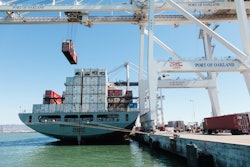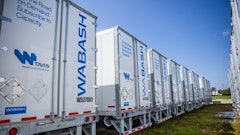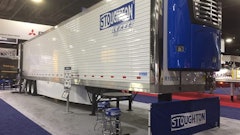
The transport and logistics (T&L) industry is getting the least return on investment from intelligent automation projects compared with other industries, according to a new survey from ABBYY. In fact, the study revealed only 26% of T&L companies made two times the ROI, significantly lower than the average of 50% reported by insurance, manufacturing, banking and government organizations.
“It’s not surprising that the transportation and logistics industry has had less ROI than other industries due to the complex supply chain, multiple stakeholders, and varying levels of digital transformation maturity. Business leaders need to do more due diligence and be specific about what they want to achieve with their intelligent automation projects as a third blamed failure on vague automation goals,” says Bruce Orcutt, SVP of product marketing at ABBYY. “However, it is clear that a people-first approach, such as understanding how staff interact with processes and making sure business outcomes are clearly identified, is necessary for broad success. We will inevitably witness more companies continuing to automate throughout their organization as a result of process discovery and putting people first.”
From ABBYY:
- Survey results infer that transport leaders are often investing in the wrong technology, with 67% of T&L decision makers revealing that failed projects were ripped out and replaced with different tech – once again the highest among the industries surveyed.
- One-third of respondents instigated upgrades to reduce workforce burnout (32%) and to prepare for remote working (55%) showing a new “people first“ approach to digital transformation.
- However, the biggest reasons cited for failures were also down to human elements. Skilled employees leaving the company was blamed as a reason for new automation projects not working as expected (33%) and employees not being trained appropriately (33%).
- Despite the drawbacks, 86% of respondents say intelligent automation initiatives have been successful for their business – with solutions like intelligent document processing increasing efficiency (55%) and machine learning growing revenue, according to 67% of respondents – highest among all industries.
- 39% of T&L companies said they invested in tech to retain customers, the highest among the industry groups, suggesting fears about losing clients to rivals.
- The most popular technology introduced in the last year was process automation (57%) followed by artificial intelligence (52%) and document centric process automation (39%).
- Biggest reason for projects being a success was that it was “easy to use“ (53%).




















